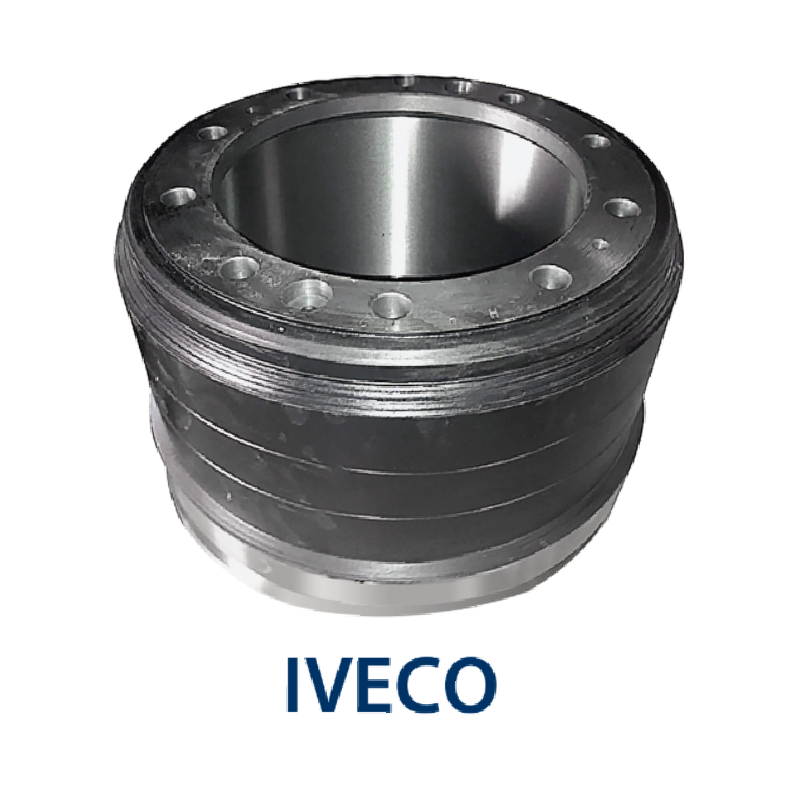aug . 19, 2024 02:18 Back to list
Brake Drum Manufacturing Plant Overview and Production Capabilities Analysis
The Importance of Brake Drum Factories in the Automotive Industry
The automotive industry is a complex and dynamic field that relies heavily on specialized manufacturing processes. Among the critical components that ensure vehicle safety and efficiency are brake drums. Brake drum factories play an essential role in producing these vital components, and their significance can hardly be overstated.
Understanding Brake Drums
A brake drum is a crucial part of a vehicle's braking system, particularly in drum brake setups. It acts as a cylindrical container that houses the braking mechanism. When the brake pedal is pressed, the brake shoes expand against the inner surface of the drum, generating friction that slows down or stops the vehicle. This simple yet effective design has been a staple in automotive engineering for decades.
The Role of Brake Drum Factories
Brake drum factories are specialized manufacturing plants dedicated to producing high-quality brake drums that meet stringent safety and performance standards. These factories utilize advanced technologies and methodologies to ensure that each component produced is capable of withstanding the various stresses and strains encountered during operation.
1. Design and Engineering The manufacturing process begins with the design and engineering of the brake drum. Designers use computer-aided design (CAD) software to create detailed drawings and specifications. This phase is critical, as improper design can lead to failure during use, posing risks to vehicles and their occupants.
2. Material Selection Brake drums are typically made from cast iron or, in some cases, high-strength aluminum alloys. The choice of material directly impacts the durability and performance of the brake drum. Factories must procure high-quality raw materials and ensure that they meet industry standards.
brake drum factory

3. Manufacturing Process The manufacturing process involves casting, machining, and finishing the brake drums. Advanced casting techniques, such as sand casting or gravity casting, are employed to shape the raw materials into the desired form. Once cast, the drums undergo machining processes to achieve precise dimensions and surface finishes. Every step in this process must be closely monitored to maintain quality.
4. Quality Control After manufacturing, brake drums are subjected to rigorous quality control tests. These tests evaluate factors such as dimensional accuracy, surface finish, and structural integrity. Factories often utilize advanced testing equipment, including non-destructive testing methods, to ensure that each component meets safety specifications.
5. Distribution and Supply Chain Management Once produced and tested, brake drums are distributed to various clients, including automotive manufacturers, aftermarket suppliers, and repair shops. Effective supply chain management is crucial to ensure timely delivery and to meet the demands of the automotive market.
Sustainability in Brake Drum Manufacturing
As the automotive industry increasingly focuses on sustainability, brake drum factories are adopting eco-friendly practices. This includes recycling scrap materials, minimizing waste, and improving energy efficiency in manufacturing processes. By implementing sustainable practices, these factories help reduce their environmental impact while maintaining high production standards.
Conclusion
In conclusion, brake drum factories are integral to the automotive industry, providing essential components that ensure vehicle safety and performance. Through innovative design, careful material selection, precise manufacturing, and rigorous quality control, these factories ensure that brake drums can withstand the demands of modern vehicles. As the industry continues to evolve, the importance of high-quality manufacturing and sustainable practices will only increase, making brake drum factories a vital part of the automotive supply chain.
-
Premium Brake Drum Iveco – Durable Drum Brake Drum & Brake Shoe Solutions
NewsJul.08,2025
-
High-Performance Brake Drum Liza for Enhanced Safety Reliable Drum Brake Drum & Brake Shoe Solutions
NewsJul.08,2025
-
High-Quality Brake Drum MAZ – Durable Drum Brake Drum & Brake Drum and Brake Shoe for Optimal Performance
NewsJul.07,2025
-
High-Quality Brake Drum Kamaz for Reliable Performance Durable Drum Brake Drum & Brake Shoes
NewsJul.07,2025
-
High-Quality Brake Drum Kamaz for Reliable Performance Durable Drum Brake Drum & Brake Shoe Replacement
NewsJul.07,2025
-
Brake Drum Man - High-Quality Drum Brake Drum & Brake Drum and Brake Shoe Solutions
NewsJul.06,2025
